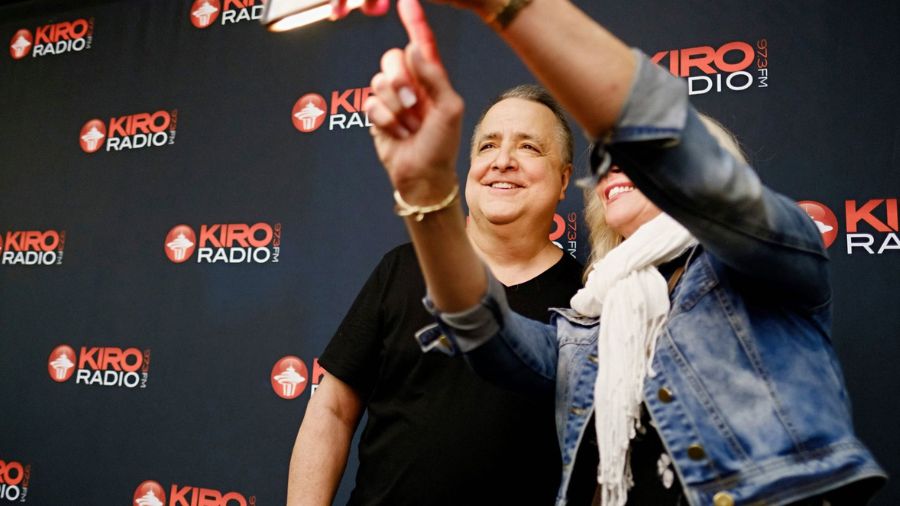Dori: Homelessness industry trades attacks for six-figure salaries
Jan 24, 2019, 1:56 PM

Tents are a common sight on Seattle streets. (AP)
(AP)
One of the great crimes that our politicians commit — and I wish we could charge them with this crime — is that in their desperation to bring as much homelessness and addiction as possible to the Puget Sound area, they continuously put a lot of people in great peril.
Then they tell us these lies, that they need to raise our taxes to help the homeless. Remember that bogus survey from a couple years ago that said that very few people on the streets were using heroin, and that the people who were on the streets were our friends and neighbors who were born and raised here?
It was a complete lie, but it pulled at our heartstrings to get us to approve tax increases.
Look at what we have seen on a consistent basis for the last few years — Kelly Heron, sexually assaulted by a homeless man from Arizona while she was on a run at Golden Gardens; a woman raped in a bathroom of a Ballard car dealership by a homeless man from Texas; a family of tourists at Seattle Center violently attacked by a homeless man who had just moved here; the huge encampment on the sidewalk by the Space Needle, created by homeless people from West Virginia.
RELATED: City cutting navigation team proves homelessness is an industry
It’s undeniable. We have drug addicts and people with mental illness from around the country who see our lax drug policies and think, “Seattle is the place to be.”
As you’ll see in a video that KIRO 7 obtained, there was yet another violent, bloody attack on Thanksgiving morning in Pioneer Square. The attack happened near the Union Gospel Mission, though neither the suspect nor the victim had any ties there.
In the video, a man is standing on the sidewalk, appearing to be waiting for a bus. That is when a man with a six-inch steak knife, for no reason at all, begins stabbing him. It is a brutal, senseless attack. The attacker was Anthony Boatwright, 51, who came out here recently from Pennsylvania. In Pennsylvania, he had a rap sheet as long as your arm dating back to 1991, including convictions such as aggravated assault and cruelty to animals.
When Boatwright came to Seattle in August, he listed a 3rd Avenue homeless shelter as his address. That is part of the scam our government leaders try to pull — people put their last known address as a Seattle homeless shelter, and suddenly they are ‘locals.’
Pioneer Square business owners told KIRO 7 that businesses are being crushed because customers are becoming too scared to visit the neighborhood.
We have drug laws that attract vagrants from around the country to our region. That could seem attractive to gangs that sell heroin on the streets. You have property crime being committed at a higher rate than any other city so that addicts can pay for their fix.
It’s madness right now. And we continue with these policies and politicians attracting these vagrants to our city, where innocent people are afraid to walk down our streets anymore. So why in the world do our politicians make us the drug magnet of America?
There is an answer for that.
The Low-Income Housing Institute told KOMO 4 that because of funding lost through the federal government shutdown, there is no way to provide housing for the people they serve. Actually, there’s no way to provide for the population you serve even if you have $10 billion, because they don’t want housing. They want tents and they want drugs.
LIHI’s Lynne Behar said that “society is being held hostage over immigration issues” by the federal government. Lynne, I would say that society is being held hostage by the homelessness industrial complex in Seattle, where we spend a billion dollars a year — $100,000 per homeless person.
You may recall, last summer I obtained a copy of LIHI’s 990 form. Homelessness is a racket. Why do things keep getting worse, despite the billions we spend? The homelessness industry is a racket. It’s not designed to get people off the streets. It’s designed to use the sad plight of homeless, mentally-ill drug addicts to enrich all the people connected to the homelessness industry.
Sharon Lee, the director of LIHI, makes a $195,000-per-year salary, plus over $7,000 in “other” compensation. Do you find it at all ironic that the director of the Low-Income Housing Institute pulls down $200,000 a year? I’ll tell you what, she solved one housing problem, and that’s her own — I’m sure she lives in a very nice place.
Lynne Behar is the chief financial officer of LIHI. She made $149,000 plus $7,300 in “other” compensation. The director of housing development at LIHI makes $113,000 a year. So the employees of what is called the Low-Income Housing Institute are making six-figure salaries.
What do we get? A problem that is exponentially worsening. They are not improving the cause that they are getting paid a handsome six-figure salary to address. Politicians continue to import homelessness, and innocent people are getting hurt on the streets of Seattle.













